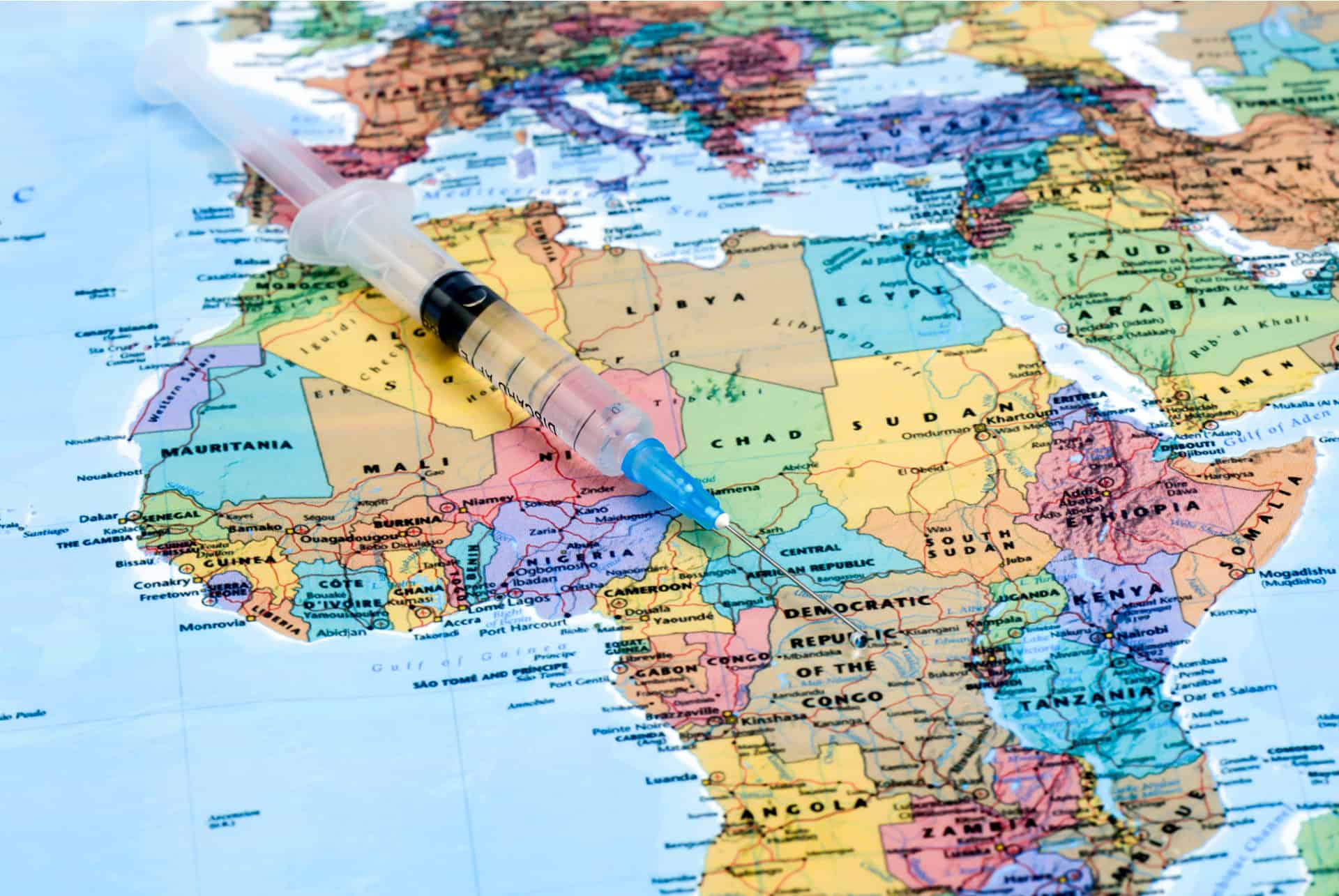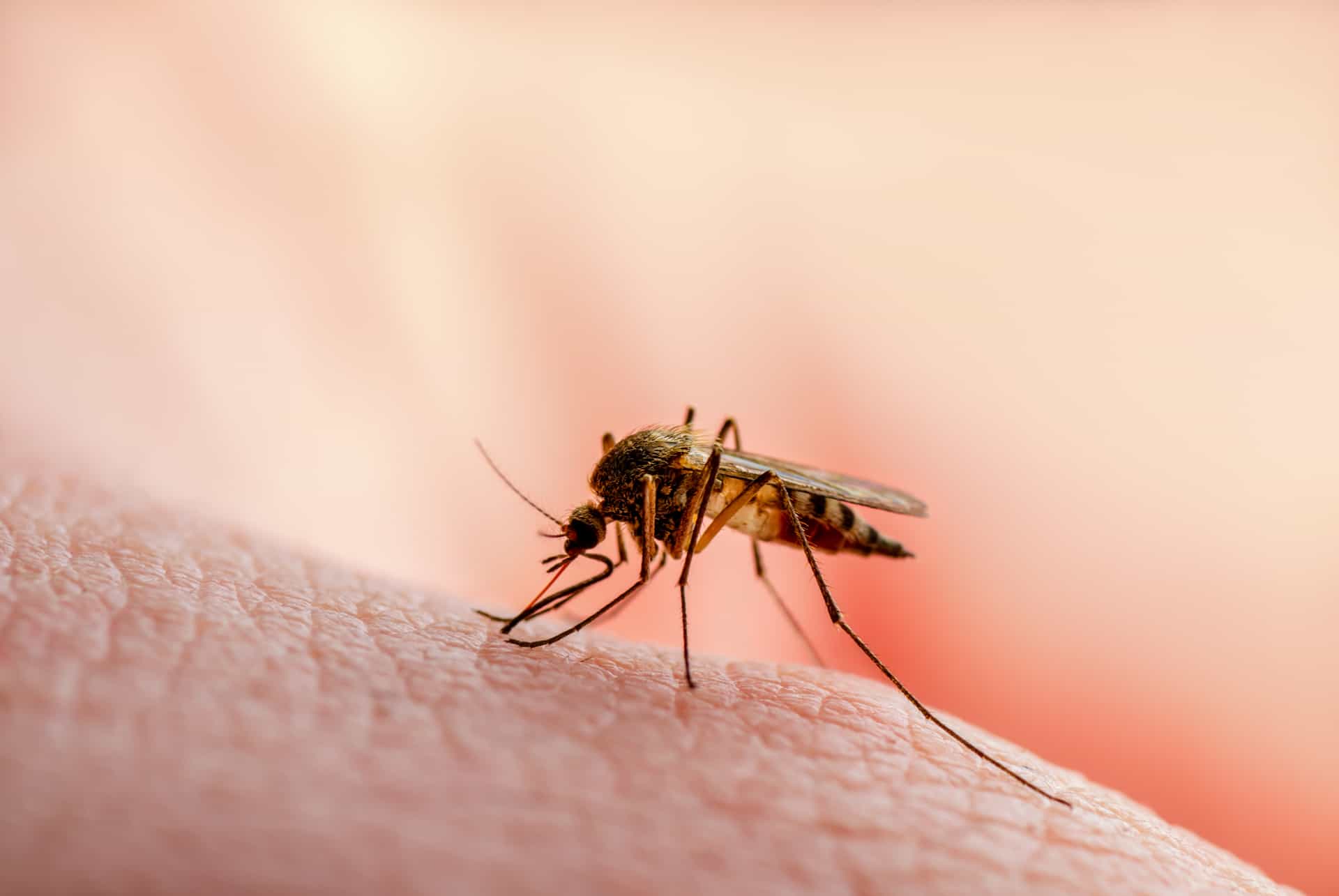Leaving soon for a safari in Kenya? In addition to important administrative aspects such as the Kenya visa, you'll need to check your vaccination status. Even if the health infrastructure is quite good in the country's major cities, such as Nairobi and Mombasa, it's still important to take certain precautions to travel as safely as possible. In this article, you'll find all the different vaccines for travel to Kenya you need 🙂
What vaccinations are required for travel to Kenya?

There is actually no mandatory vaccine to travel to Kenya. There is only one exception: if you’ve traveled through a country where yellow fever is endemic before arriving in Kenya, that vaccine becomes mandatory before entering the country.
What vaccinations are recommended for a trip to Kenya?
As I said above, no vaccine is mandatory to travel to Kenya. Naturally, going there without taking any precaution is far from recommended! The CDC published a list of all the vaccines that you should be up to date with before your travel. You can consult the list directly on their website, but suffice to say all routine vaccines are included.
The strongly-recommended vaccines include chickenpox, DTaP, Flu (influenza), MMR, polio, shingles, hepatitis A, malaria (pill form), meningitis, rabies, typhoid, and of course yellow fever.
- Yellow fever is a viral infection transmitted by mosquito bites, and the risks are relatively high in western and central Kenya. The yellow fever vaccine is an injection to be given at least 10 days before departure, and is intended for everyone, including children aged 9 months and over. Although not compulsory, this vaccine is nevertheless a priority.
- Hepatitis A is an infection that can be caught by eating contaminated food or drinking contaminated water. This is one of the vaccinations recommended for almost all travel. The injection must be given at least 15 days before departure.
- Hepatitis B vaccine is especially recommended for extended stays or frequent travel. It consists of two injections spaced one month apart, but can also be given as part of an accelerated schedule of 3 injections spread over 21 days.
- Rabies is most often transmitted by a bite, but a more innocuous contact with an infected animal can also infect you. Vaccination is given in 3 injections over 28 days, though treatment is required if infection is suspected.
- Meningitis is a bacterial infection that can affect the meninges. This vaccination is recommended for people who travel to the north-west of the country during the dry season, and who may come into direct contact with locals.
- Typhoid is a bacterial infection that can occur after ingesting contaminated food or water. This risk is present throughout the country, and vaccination is recommended for prolonged travel. This vaccine is recommended for those over 2 years of age, and is administered in a single injection at least two weeks before departure.
- Treatment against malaria may also be necessary. This is not a vaccine, but a preventive treatment to limit the risk of infection. Several preventive treatments may be used, depending on the case (chloroquine, mefloquine, atovaquone/proguanil, etc.). In addition to medical treatment, which may vary according to the species of parasite responsible for the infection, it is essential to protect yourself from mosquito bites.
It's important to note that these vaccines for travel to Kenya provide additional protection, but should never be used as a substitute for basic precautions. For example, always remember to wash your hands and food thoroughly, and don't drink water that hasn't been filtered or purified beforehand 🙂
If you develop a fever in the months following your stay in Kenya, you should consult your doctor as soon as possible, and tell him or her that you have recently traveled to Africa.
Covid 19 formalities
Even now, certain measures can be put in place as part of the fight against the circulation of Covid-19 and its variants. Entry to and exit from US territory are subject to regulations, and the same applies to arrivals in and departures from Kenya.
Currently, COVID vaccination passports or certificates are not mandatory to enter Kenya. Moreover, fully vaccinated passengers with a valid COVID-19 vaccination certificate will not need to present a negative PCR test.
As such, travelers entering Kenya do not need to present neither a COVID-19 vaccination certificate nor a negative PCR test.
The only COVID-related formality concerns passengers entering the Kenyan territory with flu-like symptoms. These passengers will be required to fill a passenger locator form, as well as take an on-arrival antigen test. If the results are positive, this test will be followed by a PCR test.
Diseases transmitted by mosquitoes and insects in Kenya

Malaria, chikungunya, dengue fever, yellow fever, zika... In Kenya, many infections can be transmitted by mosquitoes, tsetse flies and other insects such as sandflies.
All these diseases do not necessarily have a vaccine, or if they do, these vaccines may not always be particularly recommended for short trips to Kenya.
To stay as safe as possible, remember to carefully protect yourself from insects. It is best if you remember to bring in your suitcase:
- Skin repellent and insect repellent adapted to tropical mosquitoes,
- Long-sleeved clothing,
- Closed shoes or light socks,
- Mosquito netting to protect you at night,
- Additionally, use the air-conditioning in a hotel or lodge. The cooler air reduces mosquito activity.
That’s all for this article on vaccines for travel to Kenya! I hope you've found it useful, and that it will help you prepare for your next trip to this incredible country! If you'd like to prepare even better, check out my articles on when to go to Kenya and what to do in Kenya. You’ll find all the info you need for an unforgettable stay! 😀
0 Comments